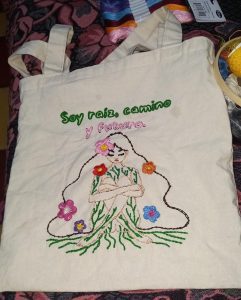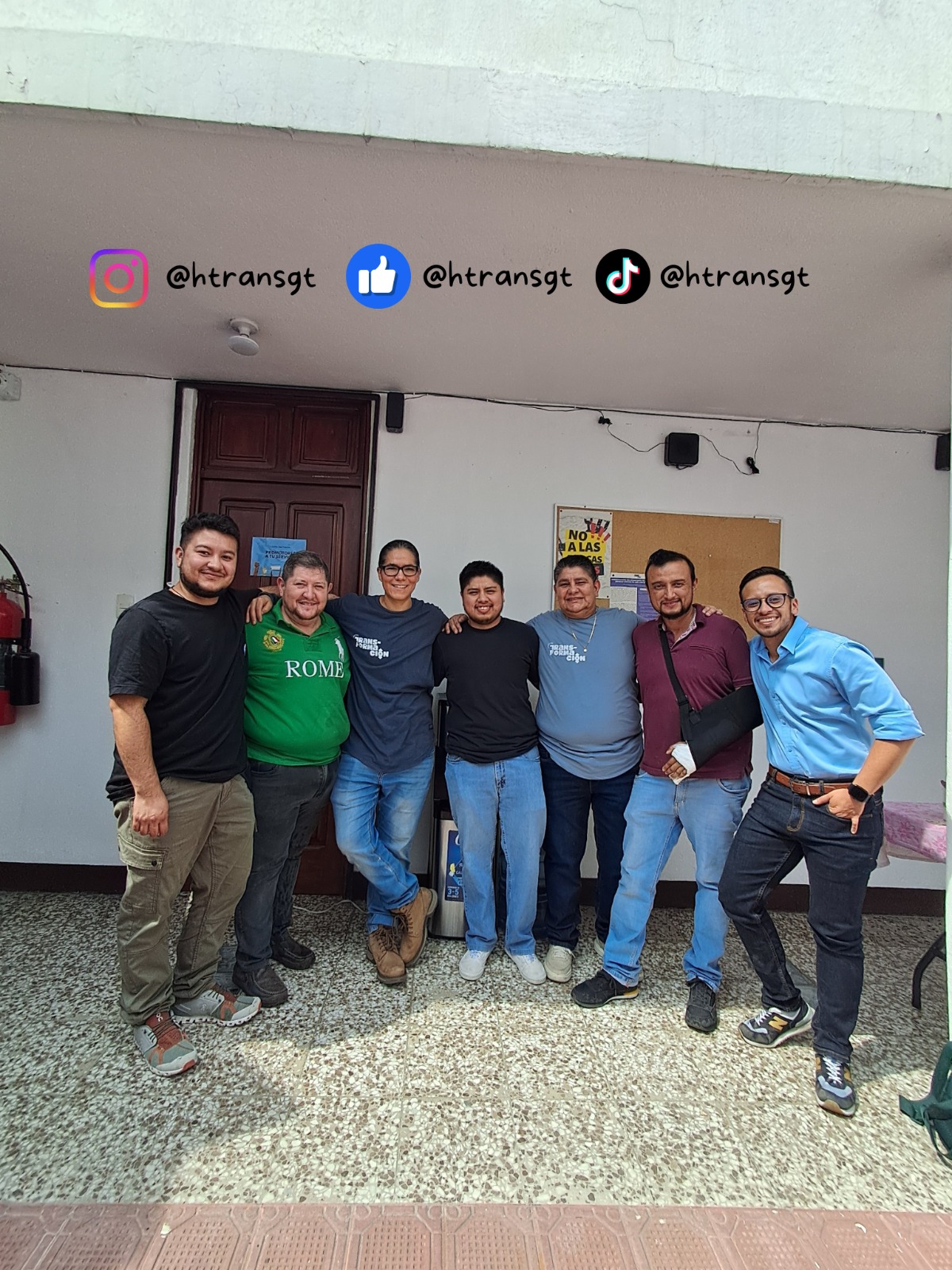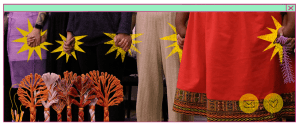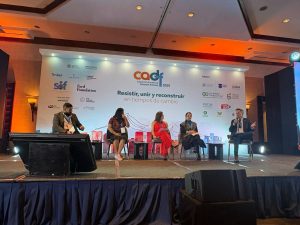
#28S: Transmasculinities and the Right to Choose

Table of Contents
- Converging kinds of violence
- A right denied
- Violence continues when transmasc people carry to term
- Urgent changes, legal loopholes
Alex Castillo is a father, a grandfather, an activist, and the coordinator of the Trans-Formación collective, the first transgender collective in Guatemala, with a membership of approximately 230 trans-men.
Because Alex never identified with the female gender he was assigned at birth, he experienced family and societal pressure from a very young age, to the point of being forced by his family to marry as a corrective measure. His two children were born from that union.
To remain by his children’s side, care for them, raise them, and support them, Alex was coerced into giving up his true self and assume an extraneous identity.
It wasn’t until his children were grownups and in control of their lives that Alex was able to once again commit to his true self; he began to transition in 2013, at the age of 43.
In the context of September 28th, the “Global Day of Access to Safe and Legal Abortion,” we spoke with Alex to bring the realities of transmasc people and their right to choose into the conversation.
Converging kinds of violence
FCAM: Based on the experience of the Trans-Formation collective, what forms of violence converge can a transmasc person tries to get abortion?
Alex: Every form of violence we experience is upheld by machismo and patriarchy. Many of us who were assigned female at birth and don’t conform to heteronormative standards experience corrective sexual violence, which is seen as socially acceptable.
In this sense, the severest forms of violence come from within the family itself, which is [one of the few places] we truly know or where we’ve felt we could seek refuge.
We’ve been taught that families shouldn’t be disrupted and that families should be respected, and that’s why many trans-men who have suffered corrective sexual violence at the hands of their own families don’t report it.
Furthermore, this type of violence has not been typified and recognized by public institutions, nor is it documented. [That only happens] within our own community.
Data:
- Unlike trans women, who are often expelled from their homes, transmasc people tend to be confined and subdued within their homes so they can be “corrected.”
- Corrective sexual violence against transmasc people is a form of “punishment” for refusing to accept the feminine social construct they were given at birth, simply because they have a vulva.
- Many transmasc people who suffer sexual violence face forced pregnancies without guaranteed access to abortion.
A right denied
FCAM: What violence and obstacles do transmasc people face if they choose to terminate a pregnancy in Guatemala?
Alex: The first physical, emotional, and social violence [we experience] is being told that, as pregnant bodies, the Guatemalan Penal Code punishes people who undergo or perform an abortion with 5 to 10 years in prison.
There are clandestine places where they [perform abortions], but we expose ourselves to a different kind of violence in these places because practitioners don’t understand that a man can be pregnant (due to our physical appearance). Furthermore, their clandestine nature makes it so they lack the proper hygienic conditions [necessary to perform the procedure], which endangers our lives.
It’s a complex issue, On the one hand, we are threatened with imprisonment, and on the other, clandestine practitioners also refuse to support a pregnant person who presents as masculine.
Moreover, transmasc populations have been unfortunately excluded from the movements that support abortion rights, as if we didn’t have the right to make decisions about our bodies and as if childbearing wasn’t a part of our reality.
I believe that we need a great deal of allyship, solidarity, empathy, understanding, and knowledge regarding this issue, so that the movements that work toward legal abortion can support us as opposed to perceiving us as alienated from the issue.
Data:
- In Central America, the criminalization of abortion and the exclusion of transgender people from laws and statistics increase the risk of unsafe abortions.
- The lack of data on transmasc people is a form of institutional violence that perpetuates invisibility and the impossibility of transmasc people accessing rights.
Violence continues when transmasc people carry to term
FCAM: What violence do transmasc people face if they decide to carry the fetus to term?
Alex: The first violence you’ll face is having to renounce your gender identity. The health system isn’t prepared to care for a man who is pregnant, so they will deny you prenatal care.
The Comprehensive Differentiated Health Strategy for Trans People in Guatemala is currently nothing more than a document. That is, it has not been implemented, and therefore, no public official will be as accommodating as they should be when it comes to monitoring a pregnancy in a transmasc body.
We also experience economic violence. Unemployment rates among trans people are very high, and without a gender identity law that guarantees we have documents that align with our gender identity, we are effectively excluded from the labor market.
As a result, we have to give up our gender identity in order to survive, not only while we are pregnant, but also after the child is born, because it will have different types of needs.
Data:
- The lack of legal recognition for non-cisnormative gender identities prevents transmasc people from accessing services that have been designed for “women” only.
- When a trans person lacks official documents (such as ID cards, diplomas, or certificates) that align with their gender identity, they face discrimination and rejection when seeking employment, as well as obstacles when opening bank accounts, accessing credit, signing contracts, or starting a business.
- These structural forms of violence not only affect their economic autonomy, but also make them even more vulnerable when it comes to making decisions about their lives and bodies.
Urgent changes, legal loopholes
FCAM: What changes are urgently needed to guarantee the right to safe and dignified abortion for women, transmasc individuals, and non-binary trans people assigned female at birth?
Alex: Definitely changes to our laws, but the most urgent challenge we face is the conservative right. This is quite complex in corrupt countries such as Guatemala, where the right holds power and legislates, so that instead of reducing or eliminating penalties for abortion, they are increased. This is the most urgent, yet difficult, change [that needs to take place] so that every person capable of bearing children can make decisions about their own bodies.
FCAM: What legal loopholes exist regarding access to abortion for trans people?
Alex: Legal loopholes exist in the country for everyone. In the case of transmasc realities, what’s needed is for them to understand our needs:
- That we are capable of childbearing, which often happens as a result of corrective sexual violence, putting us at risk of STIs, including HIV.
- That we are forced to renounce our identity (we need to have more conversations on this topic).
It’s also important to connect with feminist and pro-choice groups to create the kind of support network we trans-men haven’t had.
Sources:
Interview given by Alex Castillo to the FCAM Foundation.
France 24. April 29, 2022. “Most transmasc pregnant bodies are a result of violence, not choice.”
Exploratory study of trans men, 2019. Trans-Formation Collective


